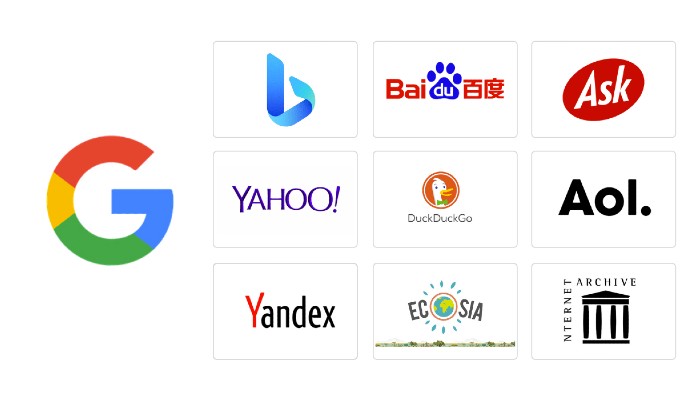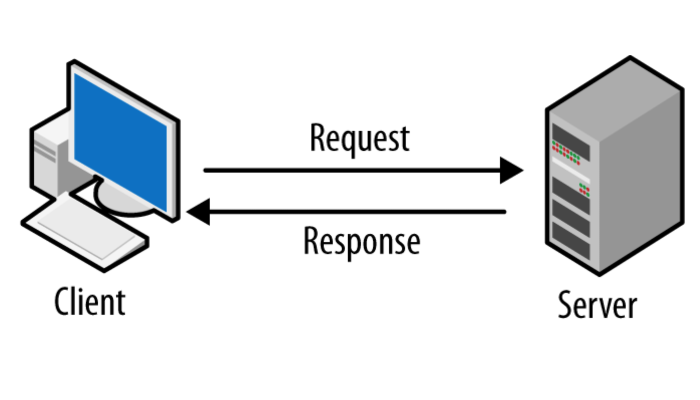Google is the most popular search engine in the world. It has a market share of around 90%. But there are other search engines you can use, which may be better for your needs.
In this article, we’ll explore some of the best alternatives to Google and show you how they work.
Some alternatives have many features
Bing is a search engine developed by Microsoft. It was initially made to challenge Google’s dominance in the search engine market, but now it is currently ranked third in the US, behind Google and Yahoo.
It was first launched on June 3, 2009, as a “decision engine” and later became a combination of a web portal and an Internet browser with its own set of features.
Bing is available in many languages like Arabic, Chinese, French, German, Italian, Japanese, and Spanish.
Users can search for the information they need either by entering keywords or making a beeline for one of the many features offered by Yahoo. The search engine also has a number of tools that help users find the information they are looking for.
The Yahoo! search engine is an American internet services provider and an online open directory project. It provides sets of Internet services, including web indexing, video-sharing, personalized content, and advertising.
DuckDuckGo is a relatively new search engine that has grown in popularity for three main reasons.
1) Privacy- DuckDuckGo does not store IP addresses, cookies, or personal information. This means that you have the same anonymity on DuckDuckGo as you do on some of the other search engines.
2) Speed- The site promises faster loading times because it does not have to deal with ads and extensive tracking software built into most other search engines
3) Clean Design- In contrast to most of the other major search engines, which tend to bunch results on one page, DuckDuckGo sorts them into categories by web, image, video, etc. This makes it easier for users to find what they are looking for.
In conclusion, DuckDuckGo is a great option if you wish to protect your privacy but still maintain access to a powerful and reliable search engine.
Baidu is a Chinese-based search engine that has invested heavily in AI. The company has begun to “teach” the capability to comprehend and generate content as well.
Baidu’s chief scientist Andrew Ng has said that AI will eventually be able to do everything a human can, only better. In the meantime, Baidu is using its AI capabilities for distributing new content, optimizing queries for users, and generating original articles for advertisers.
Yandex is the largest internet search engine in Russia, and it has the largest market share.
Yandex was founded in 1997 by Arkady Volozh. The name of the company comes from the Russian word “я́ндекс” which can be translated as “robin”. It is supposed to represent a dignified bird that never cowers.
Today, Yandex’s mission is to provide users with quick access to any information on the Web. In their pursuit for new ways of delivering content to their users, they created an AI-driven speech recognition system that lets people take control over how they want to interact with voice assistants.
Brave is a search engine with a difference. The company has decided to resort to an old-style public funding model, which means that there are no ads on Brave.
The company’s mission is to improve the web browser experience by ensuring that they eliminate ads and trackers that lead to bad browsing experiences and interrupt users.
Brave is a new type of search engine. It blocks tracking scripts and ad networks, which means that users need not worry about malware or other security threats while browsing through the browser.
Ecosia is a search engine that donates 80% of its profits from ads to plant trees.
Millions of people use Ecosia, but why are they choosing it?
Ecosia is not just an ordinary search engine, it donates 80% of its profits from ads to plant trees for reforestation. It is the only search engine that has a social mission and provides an environmentally-friendly version of internet searches.
It was founded in 2009 by Christian Kroll, Rolf Dobelli, and Jochen Seggelke in Berlin. The team members also include Jay Rifkin, Sebastian Grosse-Kunstleve, and Andreas Klinger.
In Ecosia’s first year (2009), they had already planted more than one million trees with their users’ help! For every two searches through the site, a further tree gets planted.
StartPage is a search engine from Ixquick that provides privacy and security features absent from popular search engines.
StartPage has received the European Privacy Seal. It is based in the Netherlands.
StartPage was founded in 1998 by Robert Beens and David Bodnick and it started as a meta-search engine, which meant StartPage didn’t store any personal data about its users.
As of 2018, it has over 2 billion users per year, with 64% using the browser extension on Chrome.
In 2017, the company had over 5% of searches made in Europe. That number is expected to rise to 10% in 2020, making it one of the most popular search engines there (behind Google).
Search Encrypt is a search engine that offers privacy-enhancing search, HTTPS Everywhere, and DNSSEC.
The company was founded in 2013 by David Bodnick and Michael Bottomley. The company’s goal is to provide encryption to protect customer data from ISPs, governments, and advertisers anywhere they go online.
In June 2016 Search Encrypt launched their public alpha search engine. As of June 2017 the company had raised $1 million in seed funding from Earlybird venture capital firm and has 600,000 active users per month.
While some people find Search Encrypt as a great alternative for other search engines like Google or Bing because it’s more privacy-focused, others think this is a false sense of security because Search Encrypt does not encrypt your IP address or DNS requests which can compromise user anonymity on the web.
Gibiru is a search engine that provides secure and encrypted search results. The engine starts by indexing the websites from the Dark Web and from other private, restricted areas of the Internet. It makes sure that no information is leaked to third parties.
The company also offers an encrypted email service for its customers.
OneSearch is a search engine that allows you to encrypt search queries. The search engine does not store any user data from the queries, therefore it is a deterministic encrypted search engine.
OneSearch lets you encrypt your searches so that your data stays private. You can also use OneSearch to easily find and save related topics or content across the web in one place with just one click.
Ekoru is a search engine that permits you to discover webpages that have been encrypted with AES 256-bit encryption which guarantees your privacy whilst browsing.
Ekoru was launched in 2013 in response to the revelations of Edward Snowden and the NSA’s PRISM program. The search engine was designed to protect your privacy, by encrypting all user data and browsing history.
The site is still under development, but once it goes live it will be an excellent alternative for people who care about their privacy and want to take control over their own data such as users of Tor.
The Swisscows encrypt search engine is a search engine that promises to be private, fast, and safe from data mining.
The Swisscows encrypt search engine has a private mode that runs in the background to remove any identifying information on your trails. The encryption is so strong that even if the government wanted to find out what sites you have been going on, they would not be able to because of the high level of encryption.
The Swisscows search engine does not track or store your browser history and it does not create any cookies or swap trackers. It has a simple user interface where you can input keywords or phrases into the search box and it will generate an unbiased list of results quickly.
- CC Search
CC Search is a search engine that deals with cc images, videos, sound files, and gifs. It is a tool that is used to find free-to-use content on the internet.
The homepage of cc search has a list of features that can be searched on. They are:
- Image searches
- Video searches
- Sound searches
- Gifs
Also, there is an option to upload the file to be brought up in the cc search engine results. The user interface of this website looks very basic but it does get the job done.








Leave A Comment